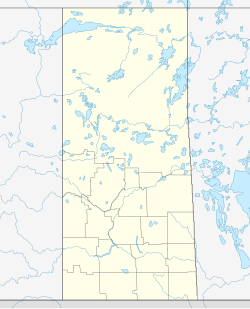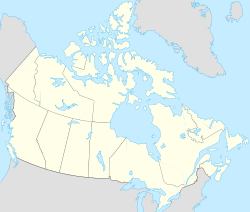Govenlock, Saskatchewan
| Govenlock, Saskatchewan | |
|---|---|
| Unincorporated community | |
| Location of Govenlock in Saskatchewan | |
| Coordinates: 49°15′43″N 109°48′32″W / 49.261845°N 109.80878°WCoordinates: 49°15′43″N 109°48′32″W / 49.261845°N 109.80878°W | |
| Country | Canada |
| Province | Saskatchewan |
| Region | Southwest Saskatchewan |
| Census division | 4 |
| Rural Municipality | Reno |
| Established | 1910 |
| Incorporated (Village) | 1913-1976 |
| Dissolved | January 1, 1976 |
| Government | |
| • Reeve | Brian McMillan |
| • Administrator | Lacelle Kim |
| • Governing body | Reno No. 51 |
| • MP | David L. Anderson |
| • MLA | Wayne Elhard |
| Area | |
| • Total | 0.00 km2 (0.00 sq mi) |
| Population (2006) | |
| • Total | 0 |
| • Density | 0.0/km2 (0/sq mi) |
| Postal code | S0N 2G0 |
| Area code(s) | 306 |
| Highways |
Highway 13 Highway 21 |
| Railways | Former Canadian Pacific Railway |
Govenlock was once a small village of 151 people in RM of Reno No. 51, Saskatchewan, Canada. It previously held the status of a village until January 1, 1976. The former townsite of Govenlock is located on Highway 21 & Highway 13 also known as the historic Red Coat Trail, about 15 km east of the Alberta-Saskatchewan border. Very little remains of the former village of Govenlock, many cement foundations and wooden sidewalks can still be found scattered around the town site, the only building that still stands as of 2010 is the old community hall and a commemorative plaque to remember Govenlock's rich history.
Govenlock, like so many other small communities throughout Saskatchewan, has struggled to maintain a sturdy population causing it to become a completely abandoned "ghost town" with a population of 0 citizens. Prior to January 1, 1976, Govenlock was incorporated under village status, but was dissolved into an unincorporated community under the jurisdiction of the Rural municipality of Reno on that date.
In 2006, Govenlock had a population of 0 living in 0 dwellings, a 0% increase from 2001. The community had a land area of 0.00 km2 (0 sq mi) and a population density of 0.0/km2 (0/sq mi).
In 1910, a Moose Jaw resident by the name of William Govenlock moved to the area with his family after applying for a homestead. They were one of the first pioneer families of Southwest Saskatchewan. In 1913, William negotiated a land deal with the Canadian Pacific Railway, starting a new town later named in his honour. That same year William established a post office for the area, with his wife Bessie as the first postmaster.
...
Wikipedia


